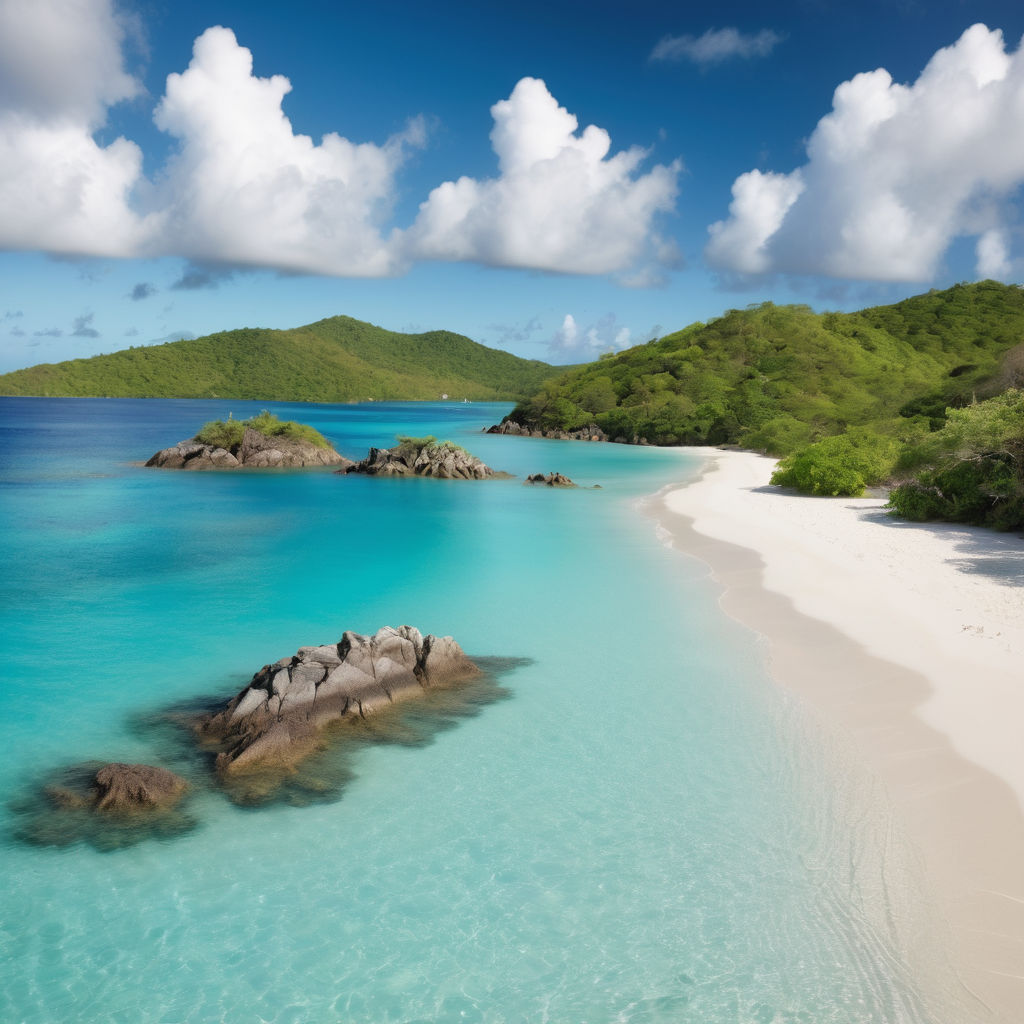Introduction to the U.S. Virgin Islands: A Caribbean Gem
Explore the Rich Culture and Stunning Beauty of the U.S. Virgin Islands

Introduction to the U.S. Virgin Islands
The U.S. Virgin Islands (USVI) is a group of Caribbean islands and an unincorporated territory of the United States. Located in the Lesser Antilles, the USVI comprises three main islands—Saint Thomas, Saint John, and Saint Croix—along with numerous smaller islands and cays. The capital, Charlotte Amalie, is situated on Saint Thomas and is known for its historical significance and vibrant culture. The islands are renowned for their stunning beaches, crystal-clear waters, and rich cultural heritage, which is a blend of African, European, and Caribbean influences. The cultural landscape of the USVI reflects its diverse history, which includes indigenous populations, European colonization, and African slave heritage. This rich cultural tapestry is evident in the islands' music, dance, cuisine, and festivals, making the USVI a unique and culturally vibrant destination.
Cross-national and Cross-cultural Understanding
The people of the U.S. Virgin Islands are known for their openness and welcoming attitude towards other cultures. This acceptance is partly driven by the islands' dependence on tourism and their historical connections with various countries. Cultural exchanges are a common aspect of life in the USVI, with numerous festivals and events celebrating both local and international traditions. Educational programs in the USVI emphasize global awareness and cross-cultural understanding. Schools and colleges often incorporate multicultural components into their curricula, fostering an environment of inclusivity and respect for diversity. Additionally, partnerships with international institutions allow for student exchanges, providing Virgin Islanders with opportunities to experience different cultures firsthand. Significant cultural exchanges and international partnerships further promote cross-cultural understanding. The USVI has established strong ties with countries like Denmark, reflecting its colonial history, and the broader Caribbean community, enhancing cultural and educational collaborations.
Interactions and Social Dynamics
Interactions between Virgin Islanders and foreigners are typically warm and friendly. Social behaviors in the USVI are characterized by a blend of Caribbean hospitality and American influence. Greetings are often informal and friendly, with an emphasis on establishing personal connections. Communication styles in the USVI can vary, but English is the official language, making it easy for visitors to communicate. However, the local dialect, Virgin Islands Creole, is commonly spoken and adds a unique flavor to everyday interactions. Multilingualism, while not widespread, is present, particularly with Spanish due to the proximity to Puerto Rico and the presence of a Hispanic community. Cultural norms in the USVI emphasize respect for elders, community involvement, and a laid-back approach to life. These norms create a relaxed and welcoming atmosphere for foreigners, who often find it easy to adapt to the local lifestyle.
Views on Dating and Relationships
Attitudes towards dating and relationships with foreigners in the USVI are generally positive. Virgin Islanders are open to forming relationships with people from different cultural backgrounds, recognizing the enrichment that such diversity brings to their lives. However, cultural expectations and traditions do play a role in shaping these relationships. Family involvement is significant in Virgin Islander relationships, with elders often playing a crucial role in the approval process. Respect for family values and traditions can influence the dynamics of dating and relationships, although younger generations are increasingly adopting more liberal attitudes. Traditional courtship practices are still observed in some communities, emphasizing respect, patience, and the gradual building of trust. However, modern dating practices influenced by global trends are also prevalent, particularly among younger Virgin Islanders.
Marriage and Family
Marrying a foreigner in the USVI involves both legal and social considerations. Legally, the territory has clear regulations governing marriage, including residency requirements and the need for proper documentation. Socially, cross-cultural marriages are generally accepted, though couples may face challenges related to cultural differences and integration. Familial acceptance is a key factor in cross-cultural marriages. Virgin Islander families can be protective, and gaining their approval is often essential for the relationship's success. However, the diverse cultural landscape of the USVI means that many families are already familiar with and accepting of different cultural backgrounds, which can facilitate smoother integration for foreign spouses. Trends in cross-cultural marriages reflect the USVI's open and inclusive society. Many Virgin Islanders who travel abroad for education or work form relationships with individuals from various cultures, bringing back diverse customs and traditions that enrich the local community.